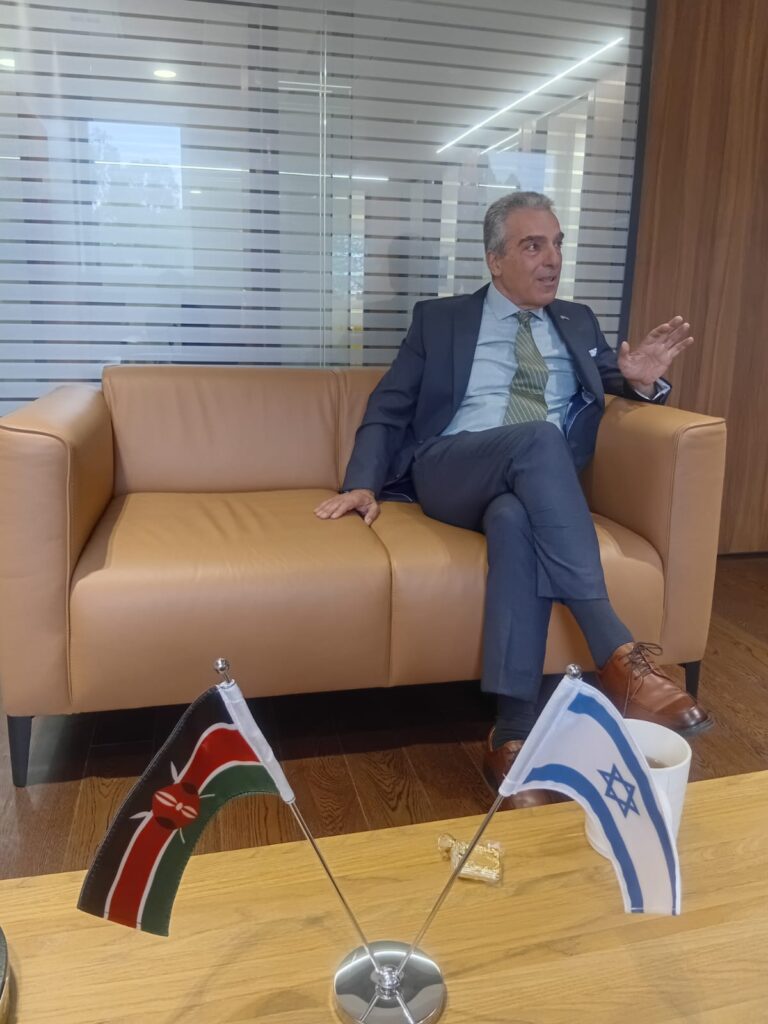Kenya’s efforts to achieve food security could receive a major boost if the government adopts Israel’s proven water management and agricultural innovations, according to newly appointed Israeli Ambassador Gideon Behar.
In his first media interview since arriving in Nairobi, Behar said Kenya must embrace irrigated agriculture, efficient water use, and afforestation to combat food insecurity and malnutrition.
“These three methods have been successful in Israel a country that is almost entirely desert through investments in irrigation technologies that save up to 97 per cent of water,” he said.
Behar emphasised that no water is wasted in Israel. “Even sewer water is treated, recycled, and reused for irrigation,” he noted, urging Kenya to adopt a mindset that views waste as a resource.
He highlighted the role of Israeli private sector players, such as Cultivaid, a non-profit organisation promoting food security and climate resilience in Eastern and Southern Africa. Cultivaid has already distributed nearly one million seedlings to residents in Embu to support forest restoration.
Behar, who previously served as Israel’s Special Envoy on Climate Change, said his mission will focus on sustainable agriculture, renewable energy, water management, aquifer protection, and afforestation.
“The government should expand land under irrigation to enable multiple planting and harvesting seasons without depending solely on rainfall,” he said.
Beyond agriculture, Behar addressed Israel’s global image and regional politics. He praised Kenyans for their warmth toward Jews and dismissed reports that Kenya’s delegation walked out during Prime Minister Benjamin Netanyahu’s UN address.
On the Gaza conflict, he accused Hamas of violating the Donald Trump-brokered ceasefire agreement, insisting Israel remains committed to peace.
Behar also criticised Israel’s continued exclusion from the African Union as an observer, blaming “extremist countries” for blocking progress despite Israel’s strong partnerships across Africa.

